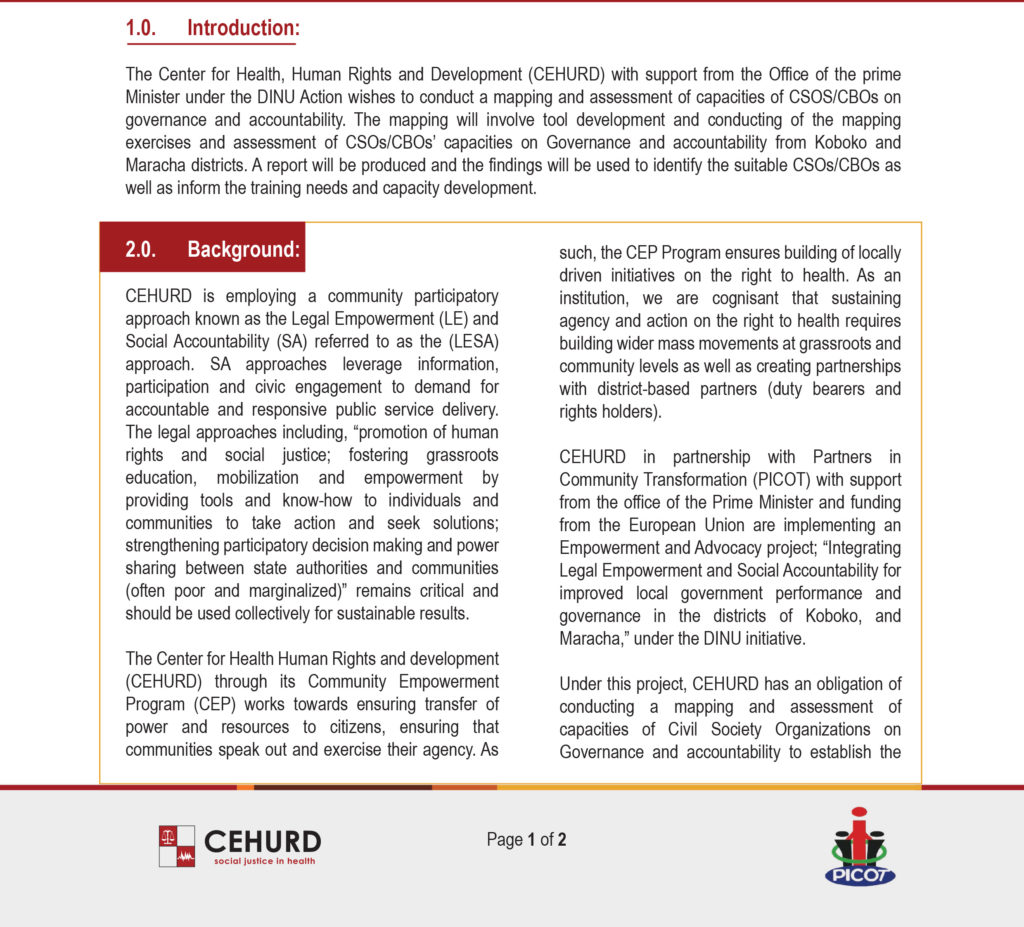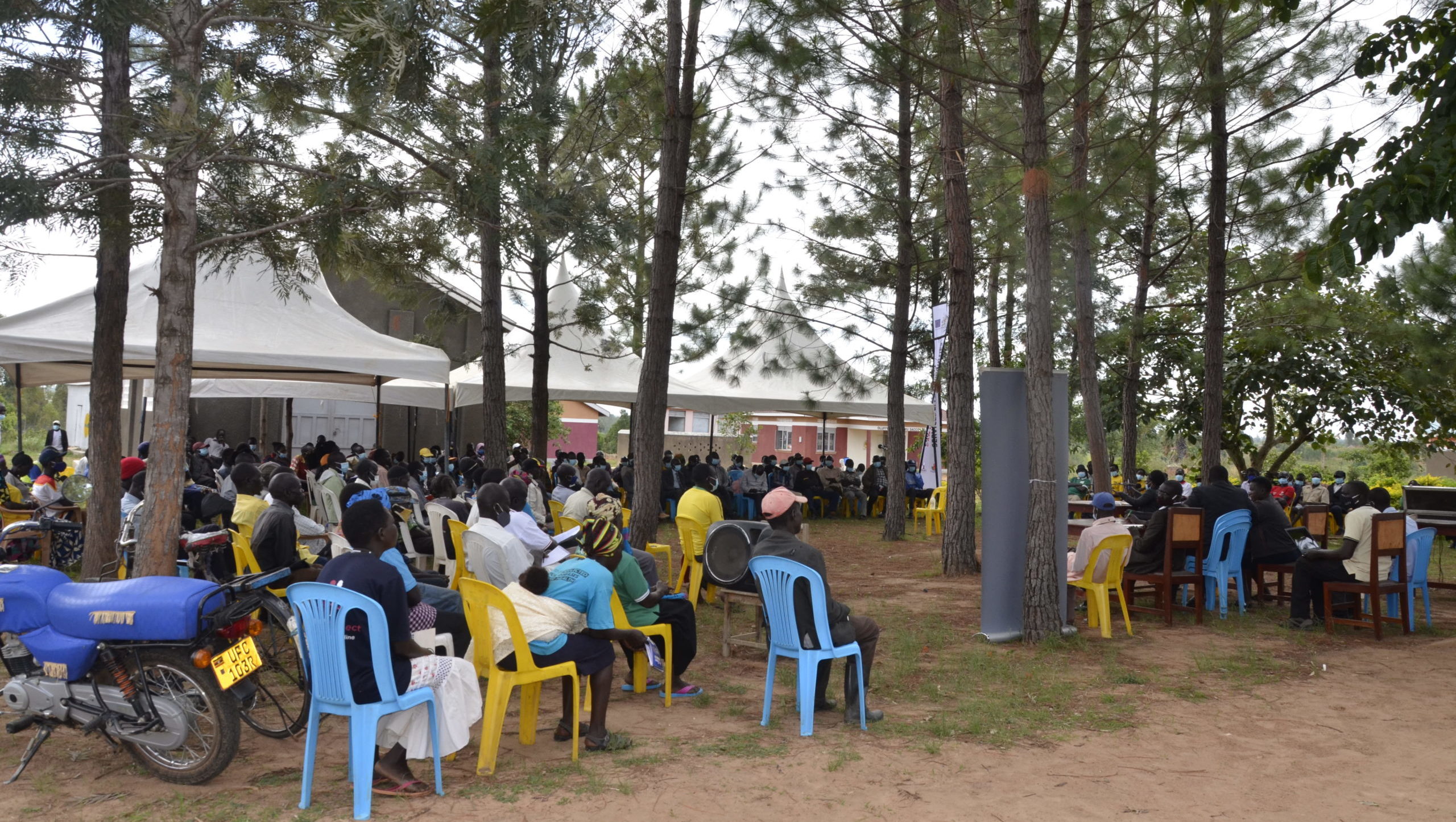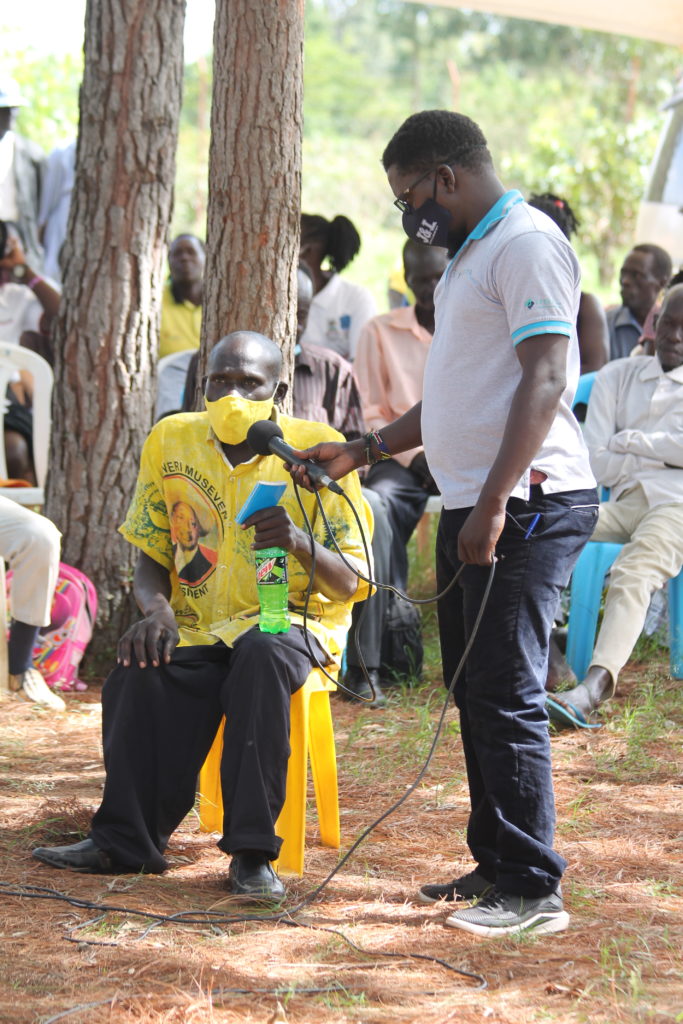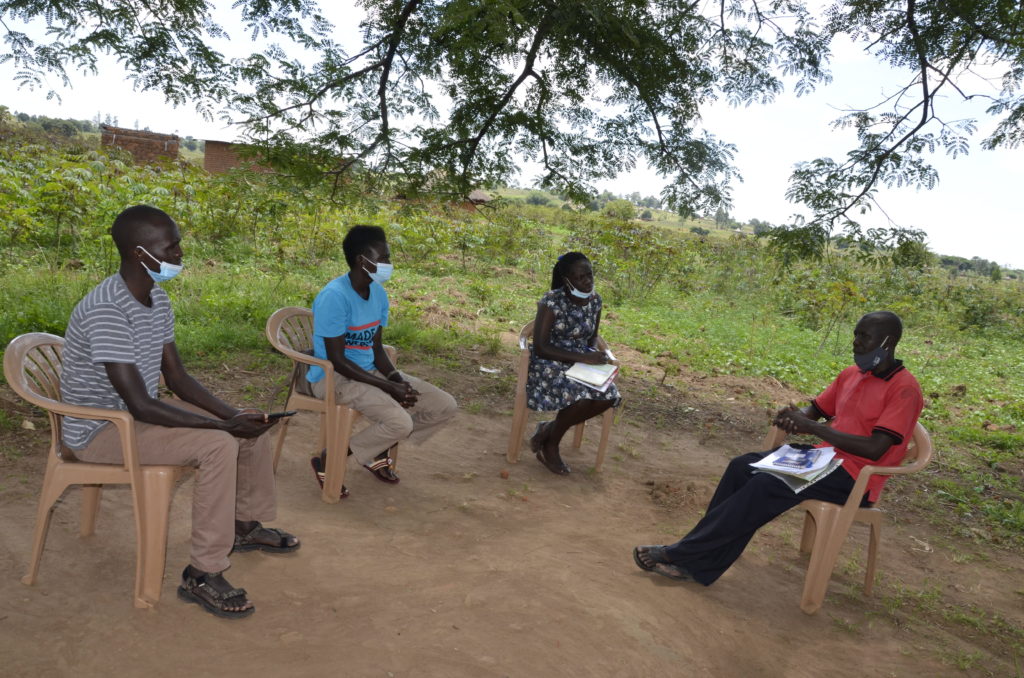



Rumors of the third wave are spreading fast and experts are cognizant of the fact that covid-19 is going to be with us for the long haul and adaptability is very key. One of the ways we can live with it is by preparing our bodies for battle. Wearing the armour of healthy eating i.e making healthy food choices for consumption.
By Miriam Kyomugisha
In the face of the second wave of Covid-19 that recently ravished our country, many youths succumbed to the deadly disease, a very sad turn of events. Following this tragic period, and in relation to this year’s International Youth Day 2021 theme “Transforming Food Systems: Youth Innovation for Human and Planetary Health’’, it is evident that some of our food choices as youths directly affects our health. Research shows and proves that when one contracts the virus, the state in which it finds their body contributes a big percentage to how one reacts to it. For instance, a person who consumes healthy foods like vegetables and fruits is most likely to beat the disease. It is public knowledge that a healthy lifestyle in especially feeding, boosts one’s immune system and equips the body with the ability to fight off the virus, viral infections are self-limiting which basically means that the body has to fight the infection on its own.
During the 2021 ECOSOC Youth Forum (EYF), the issues and priorities highlighted by young participants included the impact of the COVID-19 pandemic, particularly related to its effect on human health, the environment, and food systems. As part of the official outcome recommendations of the EYF, young participants stressed the importance of working towards more equitable food systems. In addition, they highlighted the need for youth to make informed decisions on food choices through increasing global education on the healthiest and most sustainable options for both individuals and the environment.
The food system is a complex web of activities involving the production, processing, transport and consumption. Issues concerning the food system include the governance and economics of food production, its sustainability, the degree to which we waste food, how food production affects the natural environment and the impact of food on individual and population health.
Following the aftermath of many youths dying from the COVID-19, it was discovered many of them had underlying conditions such as obesity, diabetes, cardiovascular disease and some forms of cancer. It is now common knowledge that with underlying conditions, chances of beating the disease are minimal. It is of no wonder that youths were affected most by the virus this time around, because of their preference for junk food. It would be of great significance if youths engaged more in agriculture for more production of essential foods in amounts that can ably sustain the masses.
Rumors of the third wave are spreading fast and experts are cognizant of the fact that covid-19 is going to be with us for the long haul and adaptability is very key. One of the ways we can live with it is by preparing our bodies for battle. Wearing the armour of healthy eating i.e making healthy food choices for consumption.
The high demand for healthy foods and the high rates of unemployment among the youth has brought up the question of affordability of the vital foods whose prices have been hiked. What this means is that only the well-off can afford nutritious foods. We need to get to a place where healthy food choices are made affordable to all and prioritized while deciding on what to consume as the youth.
Food systems challenges, especially nutrition-related chronic diseases such as obesity, diabetes, cardiovascular disease, and some forms of cancer are major contributors to the global burden of disease.
Celebrate the International Youth Day with us by joining conversations around the world under the hashtag #IYD2021 on Twitter, Webinars, TV and Radio conversations as we explore the role that youths can play to achieve more equitable and sustainable food systems, and highlight the fact that the success of such a global effort will not be achieved without the meaningful participation of young people.
I conclude by saying that its only when you are sick that you realise you should have eaten healthy! This is me speaking through experience as a covid survivor. ‘’Prevention is better than cure’’ has never been more accurate than in this era of COVID-19.
The writer is a program officer in the Campaigns, Partnerships and Networks programme.

Smoking is the leading risk factor for lung cancer. There is still a long way to go for us to start harvesting the fruits of the Tobacco Control Act, 2015. Massive sensitization still needs to be done.
Compiled by Syndia Chemutai
Since its inception in 2012, World Lung Cancer Day has been observed every August 1 with the aim of shining a light on this deadly disease and giving hope to those who are battling it. According to the latest WHO data published in 2018 Lung Cancer Deaths in Uganda reached 439 or 0.17% of total deaths and Uganda ranks at number 150 in the world.
Smoking is the leading risk factor for lung cancer. Research from the American Cancer Society has it that about 80% of lung cancer deaths result from smoking and according to Tobacco Induced Diseases (TIB), 62.2 % of daily smokers used manufactured cigarettes. There is a high prevalence of tobacco use in Uganda with almost 1 in every 10 Ugandans using tobacco products daily. Statistics from the Uganda Cancer Institute also indicate that 25 % of lung cancer patients were tobacco users.
Globally, tobacco kills nearly 6million people worldwide including 600,000 non smokers exposed to second hand smoke. Uganda ratified the WHO Framework Convention on Tobacco Control (WHO FCTC) in 2007. The Convention was negotiated as a Global Intervention to protect present and future generations from the devastating health, environmental and socio-economic effects of tobacco. One of the steps in fighting Lung cancer besides investing in research and improving on health infrastructure to treat Lung cancer is regulating the causes and tobacco use is one of them. It is linked to 71% of lung cancer cases.
Uganda passed the Tobacco control Act 2015 and the Tobacco Control Regulations 2019 aimed at controlling the demand for the consumption of tobacco and its products and in the long run, promote the health of persons and reduce tobacco related illnesses and deaths. The law bans smoking in all indoor places and workplaces, on all means of public transport, and in specified outdoor public places, it also bans all tobacco advertising, promotion, and sponsorship, including product displays at points of sale. It prohibits the sale of tobacco products in specified places (health institutions, schools, prisons, and other places), among others.
I commend the government upon taking the initiative as there is an impact created by the Tobacco control Act for instance non-advertisement and promotion of tobacco has been achieved. There are however instances where the provisions have not been upheld, shisha, smokeless, and flavoured tobacco are still being consumed and people can still be seen smoking on the streets and nothing is done about it. Albeit the promulgation of the laws, their enforcement and sensitization of the masses about them should be accelerated. There is no benefit of having good laws only on paper with little or no impact at all on ground.
There is still a long way to go for us to start harvesting the fruits of the Tobacco Control Act, 2015. Massive sensitization about it should be done, and enforcement of the same should be felt because much of the population is not aware of its existence, some still ignorantly break the laws and since they are not held accountable, they get away with it but the harm is already done. Incentives should also be given to tobacco farmers so they can channel their energies elsewhere, you cannot block their source of livelihood without giving them an option, they should also be clearly educated about the harm that they are causing the world by embarking on tobacco farming. These among other measures can go a long way in the fight against lung cancer.
The writer is an Intern in the Strategic litigation programme at the Center for Health, Human Rights and Development (CEHURD).

While the world seems to be drowning in the routine of infections, Covid-19 being the latest devourer, 500 million people are estimated to be infected with Hepatitis B or C worldwide according to the World Health Organization.
Compiled By Jacqueline twemanye
While the world seems to be drowning in the routine of infections, Covid-19 being the latest devourer, 500 million people are estimated to be infected with Hepatitis B or C worldwide according to the World Health Organization. These viruses kill 1.5 million people a year; 1 in every 3 people has been exposed to either or both B and C, while others suffer from alcoholic hepatitis. Unfortunately, most infected people are asymptomatic, that is, they have no or barely any symptoms of infection.
World Hepatitis Day is observed each year on 28th July to draw attention to the viral hepatitis, an inflammation of the liver that causes severe liver disease and hepatocellular cancer.
This year’s (2021) World Hepatitis Day theme “Hepatitis Can’t Wait”, conveys the urgency of efforts needed to eliminate hepatitis as a public health threat.
In Uganda, Hepatitis B infection is highly endemic according to findings from a national serosurvey. With a person dying every 30 seconds from a hepatitis related illness, even in the current COVID-19 crisis – we cannot wait to act.
The Government of Uganda is however applauded for its efforts towards the fight against Hepatitis B. Over 23 million adults and adolescents have been screened for the disease across the country, while 17.6 million adults and adolescents have been successfully vaccinated against Hepatitis B since the mass vaccination campaign was rolled out in 2015 as reported by Ministry of Health, although the target still remains unmet. Vaccination for Hepatitis B is still ongoing in public health facilities across the country for persons above nineteen years of age.
This killer disease is commonly caused by viral infection, abuse of alcohol, drugs, toxins, autoimmune hepatitis (where anti-bodies form against your liver tissue), exposure to infected bodily fluids. You may lower the risk of getting hepatitis by avoiding risky behaviours, such as sharing needles, having unprotected sex and drinking large amounts of alcohol.
Treatment options vary depending on which type of hepatitis you have. Some forms of hepatitis can be prevented through vaccination and lifestyle precautions.
Most people have no symptoms. However, those who develop symptoms may have fatigue, nausea, fever, dark urine, abdominal pain, loss of appetite and yellowing of the skin and eyes (jaundice). In cases of Alcoholic hepatitis, an increase in stomach size due to fluid accumulation.
In escalated conditions one may experience liver failure, cancer or scarring.
A call goes out to global, regional, national leaders, policy makers, communities and other stakeholders to explore opportunities for accelerating the hepatitis response to achieve elimination by 2030.
The writer is a Communications Officer at the Center for Health, Human Rights and Development (CEHURD).

Whereas the implementation of the Action was stalled by unexpected events like the outbreak of the COVID-19 pandemic and the election period, the activities implemented so far have registered quick wins. The activities have presented opportunities for community members to hold duty bearers accountable, and for the leaders to provide clarity and make commitments towards issues raised hence positively impacting the beneficiaries and creating avenues for private sector engagement.
The Center for Health, Human Rights and Development (CEHURD) with Partners in Community Transformation (PICOT) are implementing a two-and-a-half year Action in the districts of Koboko and Maracha, under the Development Initiative for Northern Uganda (DINU) with support from the European Union through the Office of the Prime Minister.
The Action is titled “Integrating Legal Empowerment and Social Accountability for improved local government performance and governance (LESA Action)”, focused on promoting accountable and responsive service delivery in the two districts, using an innovative blend of Legal Empowerment and Social Accountability (LESA) strategies.
Since its inception in January 2020, CEHURD and PICOT have carried out various activities in the districts which include an inception, baseline study, assessment and trainings for Community Health Advocates, radio talk shows, community dialogues, community radio outreaches in the six sub-counties of North Division, Lobule, and Kuluba in Koboko District, and Oluffe, Tara and Oleba sub-counties in Maracha District, in the West Nile region.

Whereas the implementation of the Action was stalled by unexpected events like the outbreak of the COVID-19 pandemic and the election period, the activities implemented so far have registered quick wins. The activities have presented opportunities for community members to hold duty bearers accountable, and for the leaders to provide clarity and make commitments towards issues raised hence positively impacting the beneficiaries and creating avenues for private sector engagement as illustrated herein.
The curious case of a Community Development Officer (CDO) with no office
The presence of a functional physical office for any leader in the community goes a long way in bridging the gap between communities, stakeholders, service providers and leaders. This in turn improves transparency and consequently accountability hence improved service delivery.
During one of the community dialogues in Oluffe Sub-County in Maracha District, community representatives raised a complaint about the absence of an office for the then CDO who was stationed on a veranda at the sub-county headquarters. This meant that community members did not have a central place to access information on government programmes and services, feedback or make inquiries which greatly affected delivery of services in the sub-county. In response, the CDO revealed that working on the veranda was not a suitable position for her to effectively serve the people of Oluffe Sub-county. Fortunately, the LCIII Chairperson committed to offer the CDO office space at the sub-county, which was a great turn of events in terms of accountability and service delivery.
In a follow up activity, we found the CDO in an office annex to the sub county hall which was previously used as a store. She reported great improvement of access to information by communities on government programmes and services such as Emyooga and Senior Citizens Grant (SCG), among others.
The CDO’s office is pivotal in the lower local government planning and budgeting process as they are the main custodians of basic information sheets. These sheets are a record of all sub county priorities for consideration of the district budget.
Denial of Access to maternal health services
On 19th March 2021, our partner PICOT held a community dialogue in Oleba Sub-county in Maracha District where a community member raised an issue of a maternal health rights violation.
Midmorning on 17th March 2021, an expectant mother from Ede Odravu village, Oleba Sub-County was referred (minutes to delivery) by a midwife at Oleba Health Centre III to Maracha Hospital which is approximately 15km away. Unfortunately, the expectant mother was unable to go far, she gave birth by the road side with the help of community members, who then carried her back to the very health centre.
As a result of the community dialogue, a disciplinary meeting was held with the health facility management and the midwife was put to task to explain her actions. An inquiry was also instituted by the Sub-county Chief who forwarded a report to the Chief Administrative Officer (CAO) for disciplinary action.
“I request the midwife to be transferred if possible because I went through too much trauma and she instead accused me of shaming her, which I apologized for. The story is not different for other mothers, many have lost their children at her hand” – Doreen Dorcus Chandiru
We held a meeting with the CAO as a follow up action to establish what action had been taken by the office of the CAO. The CAO informed us that the matter had been brought to his attention and he instructed the District Health Officer to fully investigate the matter and take necessary disciplinary action.
Legal support and access to Justice
In a meeting held on 17th April2021 at his home in Anyakani village in Oluffe Sub-County, Mr Michael Onyutha narrated the ordeal that befell his household. His 13 year old daughter was defiled by the would-be custodian and headmaster of the school she was in.

These Sexual and Reproductive Health and Rights violations in schools remain a hindrance to access to quality education for the girl child. They are also gross violations of human rights and an impediment to the Human Capital Development index.
Through our recent community radio outreach held in Oluffe Sub-county, Mr Onyutha raised this issue. CEHURD and PICOT are following up this case to seek justice, using the legal aid arm. We managed to watch brief (attend court) in the case on 21st April 2021 and 2nd June 2021 at the Magistrates Court of Koboko at Koboko and the matter was adjourned to 21st July 2021.
By virtue of these interventions, the LESA Action which focuses on promoting good governance and accountability for improved service delivery in the districts has started to register results that are life changing. Through these dialogues, community representatives and local sub-county authorities are able to share the challenges they face regarding service delivery, accountability and good governance.
“We had no place to make consultations or register our complaints and that greatly affected downward accountability and good governance in our area. We thank CEHURD and PICOT for the platform” – Agele Amis an Elder in Lobule Sub county -Koboko District
Call to action
It is evident that communities have issues and face challenges in their day to day activities with a need to be heard and attended to. Opening up avenues for dialogues between leaders and the communities they lead should be normalised and held regularly. These sessions should be practical and open to all so as to realise improved service delivery and social accountability.
We therefore encourage more downward accountability interactions even in urban centers.
Compiled by CEHURD-DINU/LESA implementing officers Jacqueline Twemanye, Ruth Ajalo and Christopher Ogwang.